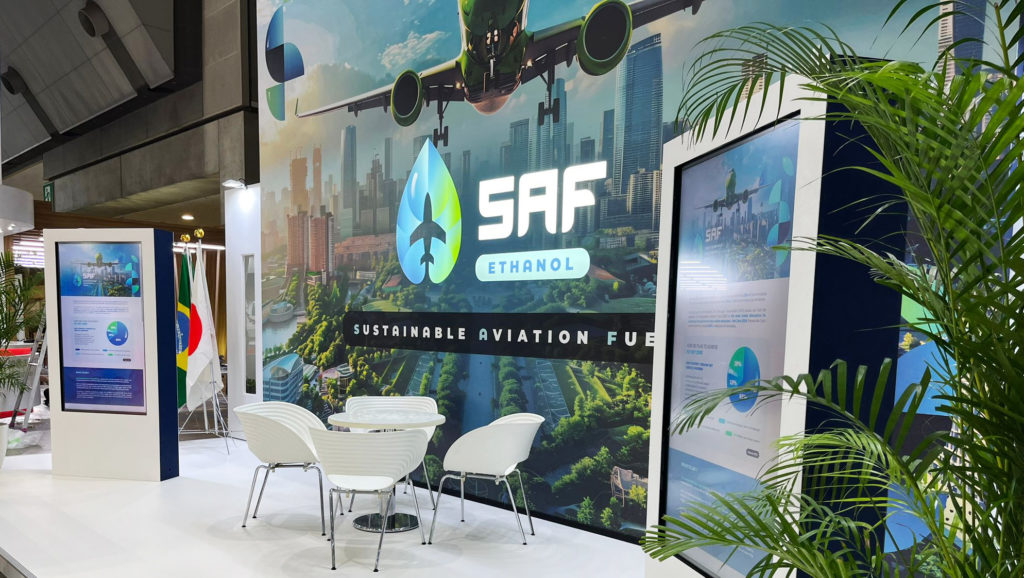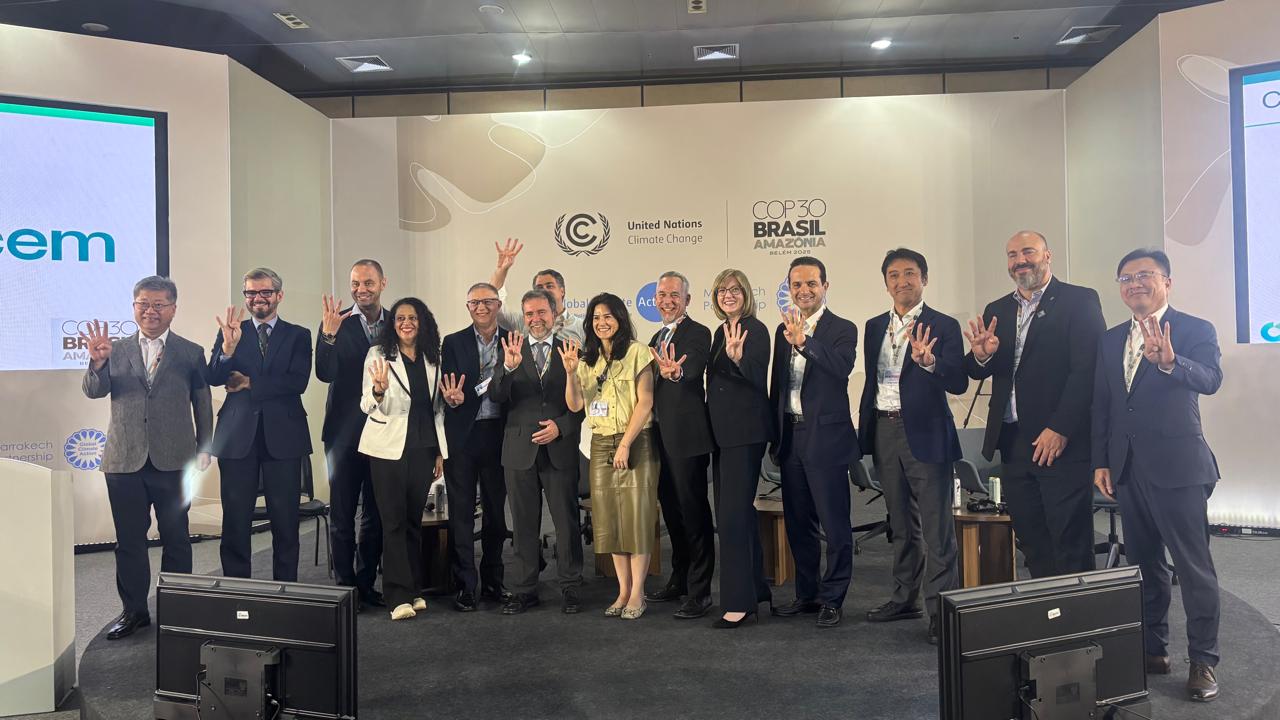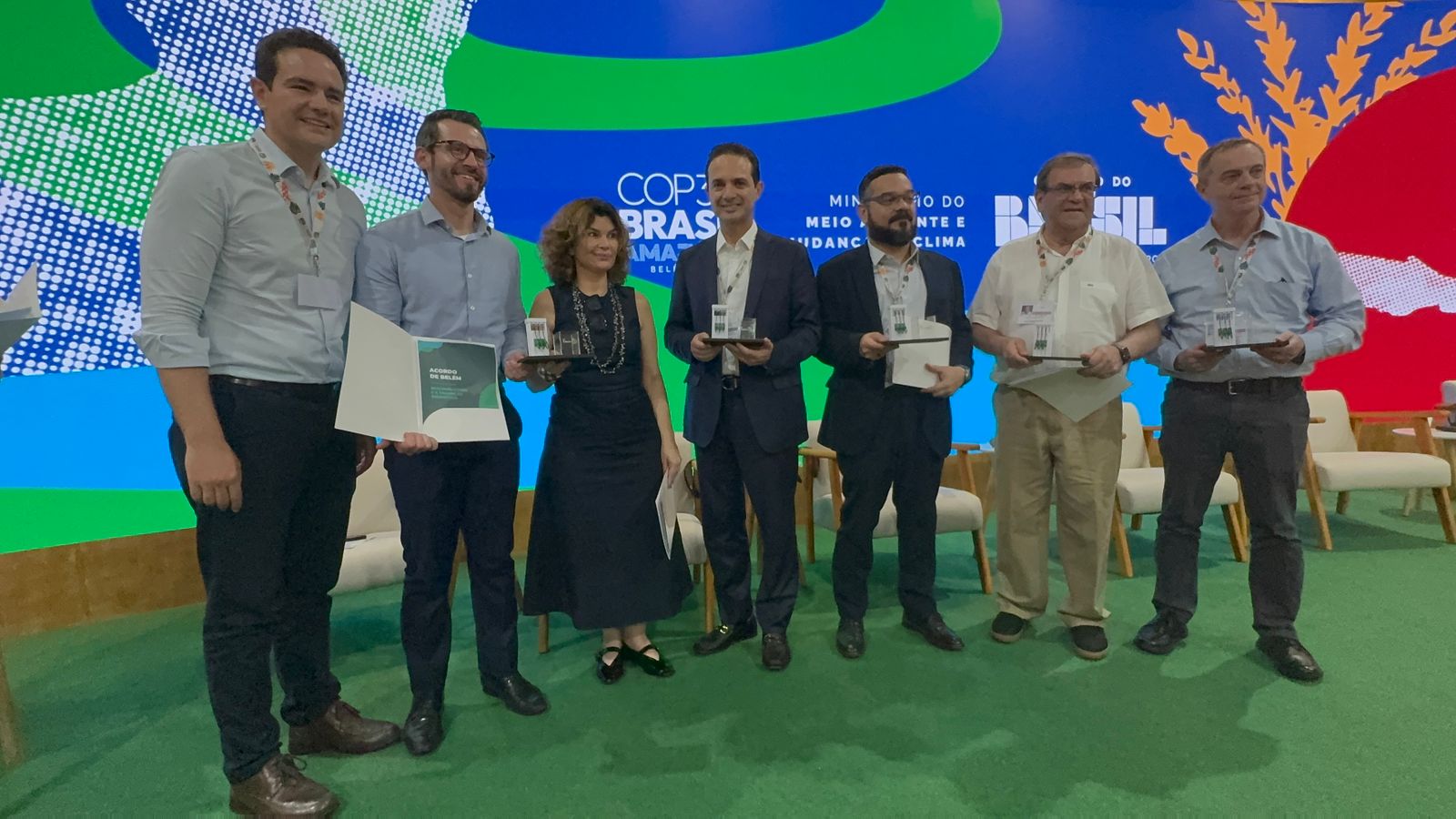
Conventional aviation fuels contribute significantly to greenhouse gas emissions, making the transition to sustainable alternatives essential for achieving global climate targets. On October 18, the Brazilian Sugarcane and Bioenergy Industry Association (UNICA) and the Brazilian Ministry of Foreign Affairs hosted a seminar in Tokyo, which was promoted in partnership with the Brazilian Trade and Investment Promotion Agency (ApexBrasil) under the Sugarcane Ethanol Project. Entitled “Brazilian Ethanol: Key Attributes for Decarbonizing the Aviation Sector”, the event invited the audience to discuss the crucial role of sustainable aviation fuels (SAF) and the contribution of Brazilian ethanol to the decarbonization of the aviation industry. The Japanese government was represented by the Ministries of Economy, Trade and Industry (METI) and Industry and Transport (MLIT), and the Institute of Energy Economics (IEEJ).
The seminar was attended by several authorities, including Mr. Thiago Poggio Pádua, Minister-Counsellor at the Embassy of Brazil in Tokyo; the deputy director of the Fuel Supply Infrastructure Policy Division of the Energy and Natural Resources Agency, Taku Hisai; and the member of the Board and director responsible for the IEEJ Clean Energy Unit, Yoshihiko Omori, as well as representatives of companies in the bioenergy sector in Brazil. UNICA was represented by its CEO, Mr. Evandro Gussi.
The debate highlighted the challenges the aviation industry faces in combating climate change while presenting a key solution for achieving a low carbon footprint. Aviation—both international and domestic—accounts for approximately 12% of total emissions in the transport sector, translating to about 3% of global greenhouse gas emissions. The industry has committed to achieving net-zero carbon emissions by 2050, and a study by the International Air Transport Association (IATA) identifies the adoption of Sustainable aviation fuels (SAFs) as the most viable pathway to reach this goal. SAFs can be produced from renewable resources, such as plant materials and waste, and have the potential to reduce lifecycle emissions by up to 80% compared to conventional fuels. Additionally, investing in sustainable fuel technology not only helps airlines meet regulatory requirements but also can pave the way for a greener future while ensuring energy security and economic viability.
Among the certified biofuel production routes, Alcohol to Jet (ATJ) stands out as one of the most promising options for achieving carbon neutrality in the short term. “This route uses ethanol as a raw material and positions Brazil as a key player in the aviation sector’s decarbonization strategy,” explained Mr. Gussi. “In this context, our country has significant potential for collaboration with other nations, such as Japan,” he added.
Aerospace Exhibition
The event is part of the program of the Japan International Aerospace Exhibition, Japan’s largest general aerospace event, which took place from October 16 to 19 and was organized by the Society of Japanese Aerospace Companies (SJAC) with the participation of major Japanese and foreign companies, government agencies, embassy officials and industry players.
During the three-day exhibition, the potential of Brazilian ethanol for the production of SAF was also presented at a booth that showcased the environmental and socio-economic benefits of biofuel and its contribution to air mobility.
The participation of Brazil, the second largest ethanol producer in the world, is a joint initiative of UNICA, ApexBrasil and the Brazilian Ministry of Foreign Affairs with the support of the Brazilian Embassy in Tokyo.
About Sugarcane Ethanol Project
ApexBrasil and UNICA made public in 2008, through the Brazilian Sugarcane Ethanol partnership, a strategy to promote the image of sugarcane products abroad, especially Brazilian ethanol as a clean and renewable energy. In 2023, the two entities signed an agreement that provides for shared investments.
The sectoral project aims to influence the process of building the image of ethanol and other sugarcane derivatives among the main global opinion makers – governments and the media, as well as trading companies, potential investors and importers, NGOs and consumers.
About ApexBrasil
The Brazilian Trade and Investment Promotion Agency (ApexBrasil) works to promote Brazilian products and services abroad and attract foreign investments to strategic sectors of the Brazilian economy. In order to achieve its goals, ApexBrasil carries out several trade promotion initiatives aimed at promoting Brazilian products and services abroad, such as prospective and trade missions, business rounds, support to the participation of Brazilian companies in major international fairs, visits of foreign buyers and opinion makers to learn about the Brazilian productive structure, among other business platforms that also aim at strengthening the Brazil brand. The Agency also acts in a coordinated way with public and private players to attract foreign direct investment (FDI) to Brazil with a focus on strategic sectors for the development of the competitiveness of Brazilian companies and the country.
About UNICA
UNICA is the main representative body for sugar, bioethanol and other bioenergy products from mills located in the Center-South region of Brazil. Currently, it has more than 120 associated companies, which represent 60% of the sugar and ethanol produced in the country. UNICA has its headquarters in São Paulo and Brasília, as well as offices.



